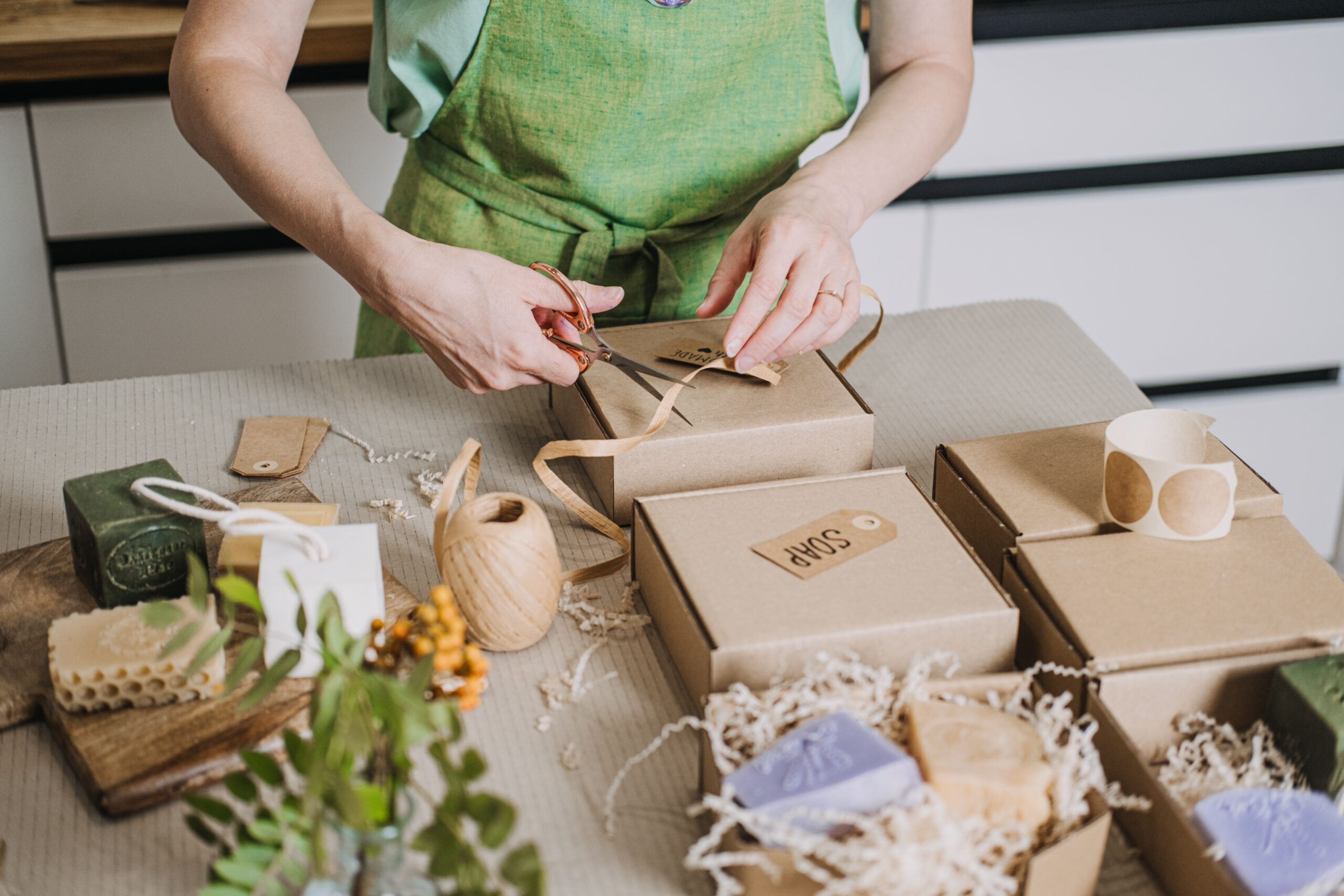For small businesses today, standing out in a crowded market requires more than competitive pricing or flashy gimmicks. The true differentiator lies in consistently offering quality where others can’t or don’t. Drawing inspiration from brands like Levi’s — which champions durability and sustainability through its “Buy Better, Wear Longer” campaign — small business owners can learn to apply similar principles tailored to their unique budgets and audiences.
Here, we’ll explore how the focus on quality transcends industries and share actionable strategies for small businesses to implement these ideas effectively.
Table of contents:
- Quality as a Universal Advantage
- Why Quality Matters
- Strategies to Prioritize Quality
- Quality and Customer Loyalty
- Getting Started Today
Quality as a Universal Advantage
Levi’s campaign “Buy Better, Wear Longer” aimed at promoting sustainable practices and longevity in apparel resonates far beyond fashion. The campaign demonstrated how brands can connect with environmentally conscious audiences, particularly younger generations, by emphasizing products that endure both physically and emotionally.
This concept applies universally. Whether you run a coffee shop, tech startup, or local boutique, small businesses thrive when they offer customers meaningful value through quality.
Why Quality Matters for Small Businesses
Quality builds brand loyalty.
When customers feel they’ve received superior value, they’re more likely to return and recommend your business to others. For example, a bakery that uses high-quality, locally sourced ingredients can cultivate trust and loyalty among patrons who appreciate freshness and ethical sourcing.
Quality differentiates you from competitors.
Small businesses face intense competition, especially from large corporations with expansive marketing budgets. By doubling down on quality, you can stand out in your niche. Imagine a small electronics repair shop guaranteeing durable fixes using premium parts instead of the cheapest available options. It communicates reliability and builds trust.
Quality is sustainable.
The demand for sustainable practices continues to grow. Data from 2025 shows that nearly 70% of global consumers prefer to purchase from brands committed to sustainability. For small businesses, adopting measures like reducing waste, sourcing ethical materials, or using eco-friendly packaging fits with this shift in consumer trends.
Strategies Small Businesses Can Use to Prioritize Quality
Offering quality doesn’t require a complete overhaul of your operations. Here’s how small businesses in various sectors can adopt practical, scalable strategies to deliver on quality and sustainability.
1. Start where you can prioritize quality.
Begin by identifying areas in your operation where quality can shine. For example:
- Food Service: Shift from generic suppliers to sourcing ingredients from trusted, local farms to enhance freshness and taste while supporting your community. A café might promote, “We source coffee beans directly from small-batch sustainable growers.”
- Retail: Introduce a mix of premium products with clear storytelling about their origin. A stationary shop could stock notebooks made from recycled or FSC-certified paper with labels describing the benefits of sustainable manufacturing.
- Tech and Services: A tech startup could invest in building user-friendly software that receives regular updates, ensuring customers experience a long-lasting impact from their purchase.
2. Balance quality with budget constraints.
Small businesses often face the challenge of adhering to tight budgets. Prioritize quality without overspending by:
- Investing in high-quality materials for top-performing or flagship offerings while keeping budget-friendly options available.
- Testing a pilot program to gauge customer interest in sustainably or premium-priced items before fully expanding.
- Discussing long-term discounts or shared initiatives with suppliers to lower costs on eco-friendly goods, as supply chains increasingly align with sustainability goals.
For example, a small furniture craftsman might introduce a single line of sustainably sourced hardwood products for high-profile clients while continuing to offer budget-friendly options made from durable composites for everyday buyers.
3. Use storytelling to amplify value.
Consumers often connect with a product’s story as much as the product itself. Share your values to reinforce why quality matters.
- A brewery might introduce beers made with solar-powered brewing techniques, pairing it with messaging like, “We’re brewing a better world, one pint at a time.”
- A home goods shop that partners with local artisans can highlight the craftsmanship, recounting the artisans’ journeys in signage or on social media.
Such storytelling builds a deeper bond, enhancing your brand’s identity as more than just another supplier.
4. Leverage technology for transparency and sustainability.
Tools and automation can help small businesses boost quality while achieving operational efficiency. Consider incorporating platforms that:
- Enable tracking and reduction of carbon footprints, such as integrating inventory tools that highlight sustainable suppliers.
- Streamline customer communication, ensuring consistent service pre-sale and post-sale with CRM platforms tailored for small businesses.
- Provide certifications or product information to customers directly (e.g., QR codes linking to material origin breakdowns for a clothing line).
These steps allow businesses to easily showcase their sustainability efforts and commitment to transparency.
5. Tailor your message to attract the right audience.
Not every customer will prioritize quality or sustainability, but those who do are often willing to pay a premium for it. A 2025 Deloitte survey found that 65% of Gen Z and 63% of millennial buyers reported being willing to pay more for environmentally sustainable products or services.
- A print and graphics business could draw in eco-conscious companies for repeat work by offering recycled materials while marketing their environmental commitment in emails and ads.
- A florist could offer “carbon-neutral arrangements” for weddings, targeting clients who favor eco-friendly event services.
Beyond targeting, consult your existing customers about their needs. Use surveys to uncover their expectations, then integrate the feedback into your offerings.
6. Strengthen local and community ties.
Local engagement doesn’t just foster goodwill — it enhances your brand’s stature as a contributor to community success and sustainability. Examples include:
- Hosting workshops to teach customers about sustainable practices, such as a small clothing store offering free sessions on caring for high-quality garments to maximize their lifespan.
- Collaborating with other local small businesses to source raw materials, like partnering with farms or creatives, to keep supply chains local.
- Joining community sustainability initiatives or donating a portion of sales to neighborhood clean-up efforts.
These actions align small businesses with local values while showcasing their commitment to doing good.
7. Think of quality as an experience.
Paul Dillinger, Levi’s VP of Product Innovation, speaks about quality being as much an experience as it is a physical attribute.
“You experience the difference when you have jeans that have been through it all with you, or when you go thrifting for secondhand jeans,” Dillinger says. “A pair of Levi’s holds up better and holds its value longer. It’s both a physical and an emotional durability that we strive to offer consumers by investing in quality and designing for lasting value.”
A professional cleaning service, for instance, might bundle eco-friendly solutions and personalized service for a homeowner, leaving every room spotless and safe for the environment. The experience is about going beyond basic expectations to turn each customer interaction into a testament to what quality means.
The Connection Between Quality and Customer Loyalty
A common misconception is that offering durable, high-quality products minimizes repeat business because customers don’t need replacements frequently. However, businesses that double down on offering long-lasting products often forge stronger, long-term relationships, unlocking opportunities such as:
- Referrals from satisfied customers
- Recognition as a reliable provider of premium offerings
- Loyalty over years due to perceived and tangible value
Getting Started Today
For small businesses, integrating quality into operations doesn’t need to occur overnight. Begin gradually:
- Research suppliers focused on quality and sustainability within your budget.
- Identify a key product or offering to improve and pilot it.
- Communicate your values through storytelling and transparent practices.
- Seek feedback and be open to refining your approach.
By taking inspiration from companies like Levi’s and adapting these practices to your scale and industry, you ensure your actions today contribute to lasting business growth while meeting evolving customer demands.
This article is adapted from a byline originally published on our sister site, Impressions. It was last updated here in June 2025.






